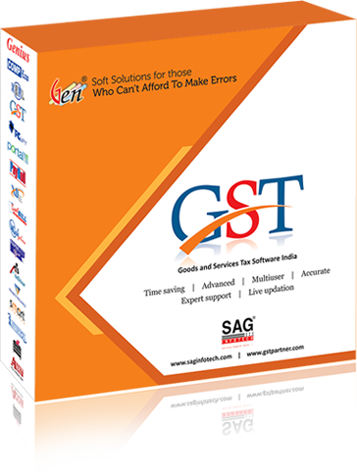Thinking about the future of cryptocurrency? Is bitcoin legal? What can be the effect of GST on bitcoin in India? How to pay tax on bitcoin profits? You must read this article to clear all your doubts.
Let us begin with some simple questions… What if there is a currency out there which is not controlled by a bank or a single administrator? Who would control the rate of exchange? Who would back this currency? Well, if you have heard and know a little about cryptocurrencies or say bitcoin to be more specific then the answer to all the above questions is actually “THEY DON’T MATTER”. But going by recent developments in Finance Ministry of India and the Central Bank, the government at the centre appears to be making a roadmap for regularisation of cryptocurrency trading and exchange. The days when cryptocurrencies like bitcoins and exchange platforms like zebpay would be on GST’s radar do not seem far ahead.
Bitcoin is the first and the most popular of the many cryptocurrencies in the market today. It is based on Blockchain technology. The blockchain is similar to a ledger and it records bitcoin transaction. Bitcoin is one of the first cryptocurrencies and was created in the year 2009. Since then a number of other cryptocurrencies have been created like Ethereum, Zcash, Dash, Ripple etc.
The Government Of India in the last two years has led tremendous stress on a cashless economy. Digital wallets, including cryptocurrencies, could prove to be a promising way ahead in this regard.
Also Read: Pros and Cons of GST in India
But the decentralized nature of bitcoins or other cryptocurrencies has proved to be a major headache for regulatory government bodies all over the world. With GST now implemented for more than 6 months and cryptocurrency trading on an all-time high all over the world, we all want to know whether there will be a GST on bitcoin in India? We hope that this article will help you understand bitcoins and in general cryptocurrencies better and also draw a clearer picture of the burning question of the present time: is bitcoin/cryptocurrency trading taxable in India?
Contents
How does Bitcoin Trading work?
In the last year or so Bitcoin and other cryptocurrencies have gained huge popularity in India. But how does one buy or get a bitcoin?
One can obtain Bitcoin either by Mining or by purchasing them. Hang on, by mining we don’t mean any physical mining. It is a virtual currency based on trust. It does not exist. So how do you mine them?. If you are a computer programmer and I mean a very good programmer than by cracking very difficult computational problems/ puzzles you can get rewards in the form of bitcoins. These are newly generated bitcoins that are integral to the blockchain technology.
Recommended: GST impact on businessmen & traders
Now, we understand that not everyone could be great at solving computational problems but hang on, you can then use bitcoin exchanges like the zebpay to buy digital coins online from digital wallets connected to your bank accounts and store them in an online bitcoin wallet. Currently, when I am writing this article 1 bitcoin is equal to 973484.05 INR, mind-boggling right?
Though the idea is still in its infancy, there are some businessmen who accept bitcoin in exchange for the goods and services they sell.
There has been a lot of uproar about the legality of bitcoins and other cryptocurrencies in India. Bitcoins or other such cryptocurrencies because of their decentralized nature come with a certain level of risk and uncertainty associated with them. However, despite no guidelines or regulations they have not been banned and hence cannot be termed as illegal.
GST on bitcoins – Is bitcoin trading taxable in India?
There are a number of scenarios under which GST tax could be levied on trading of Bitcoin and other cryptocurrencies. Let’s find out whether there is any GST on bitcoin.
Case A: Bitcoin Generated from Mining
Mined bitcoins are self-generated capital assets. Hence, it is not possible to determine their cost of acquisition. Also, provisions of Section 55 of the Income-tax Act, 1961 clearly define the cost of acquisition of certain self-generated assets. Bitcoin does not come under these provisions. Even though the miner may have had capital gains on its sale, unless and until there is an amendment passed by both the houses on Section 55 of the Income Tax Act, no capital gains tax can be levied on mining of bitcoins.
However, the income tax department may not consider bitcoins as capital assets at all.
Considering the bitcoins generated under “Income from other sources” bracket, the tax authorities can find an alternate solution to this legal problem and can collect tax on the value of minted bitcoins.
Case B: Bitcoin held as investment
If considered as capital assets, bitcoins held as an investment and later exchanged for real money via exchange platforms like zebpay are liable for a flat 20% tax on long-term gains or the applicable individual tax slab rate on short-term gains. The increment on value at the time of sale will be considered long term or short term depending on the period of holding of bitcoin.
However, if IT authorities do not consider Bitcoins as a capital asset, the provisions of capital gains would not apply.
Further, if considered under “Income from other sources”, the taxpayer would have to pay taxes at a rate as applicable to the tax slab he/she falls under. For taxable income greater than Rs 10 lakh, a tax rate of 30% would be levied compared to the 20% that would have been charged under long-term capital gains. The benefit of indexation as would be available if taxed under capital gains, would also not be available if taxed under Income from other sources.
Scenario C: Bitcoins held as stock-in-trade
The income generated out of bitcoins being transferred in exchange for real currency trading at exchange/trading platforms like zebpay would be equivalent to income from business and accordingly, the tax as per the individual slab rates would be levied on the profit margins.
Scenario D: Bitcoins received as payment
Transactions of Bitcoins which are received in exchange for goods and services will be considered on par with receipt of money. These bitcoins would be termed as income in the hands of the recipient. Further, as the recipient received this payment out of a business or profession, the individual would be liable for tax payment accordingly.






